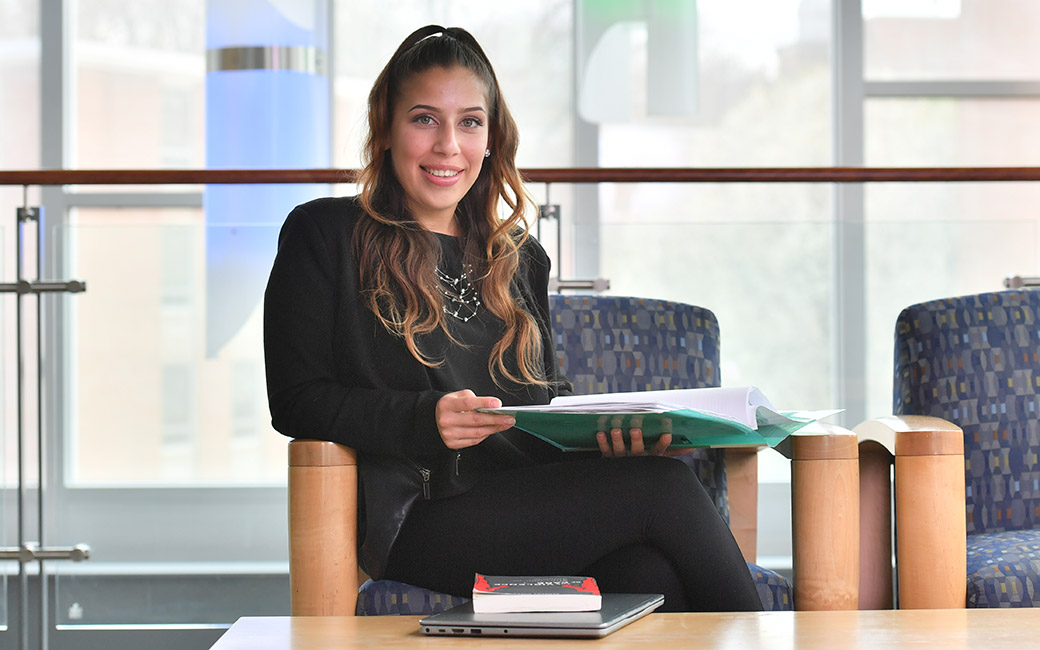Rebekah Siddique
An anthropology course led Rebekah Siddique to study the effects of living near a coal mine on indigenous people in her native Colombia.

It was not until Rebekah Siddique completed an anthropology course on natural resources that she began to think seriously about the impact of energy sources on communities around the world.
Siddique was most interested in the effect of El Cerrejon, one of the world’s largest coal mines, on indigenous populations that lived near the mine in her native Colombia. “I wanted to study if the mine had any effect on the community either culturally, physically, economically, or even spiritually.”
Her idea gained the full support of Harjant Gill, associate professor of anthropology in the Department of Sociology, Anthropology and Criminal Justice, who encouraged Siddique to make the study her honors thesis topic.
“ This thesis has opened doors for me. ”
“He really pushed me and allowed me to explore different aspects of research that I had not considered,” says Siddique, an sociology-anthropology major. “This thesis has opened doors for me.”
Siddique reached out to the Ministry of the Interior in Colombia’s capital city of Bogota who then reached out to Wayuu community leaders to allow her to conduct a community survey. Siddique found what she calls “different forms of violence” on the structure of the communities, their physical well-being and commercialization.
“Government strips people of their rights to assert power in the name of economic progress,” she asserts.
Siddique plans to continue her education. She was recently accepted into the master’s
program at American University’s School of International Service.
Want to learn more about Towson University?